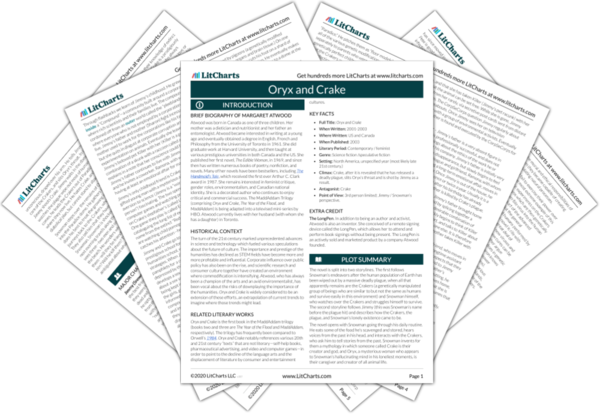LitCharts assigns a color and icon to each theme in Oryx and Crake, which you can use to track the themes throughout the work.
Scientific Progress & Its Costs
Corporate Power & Commodification
The State of Human Relationships
History, Language & the Humanities
